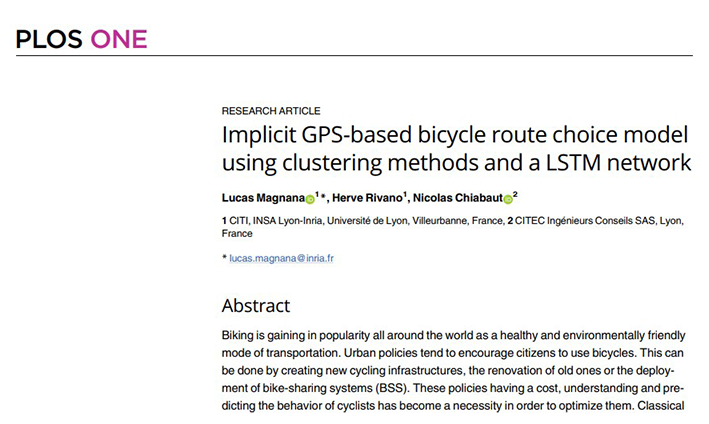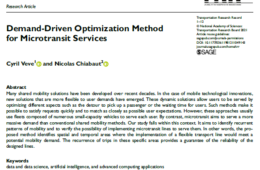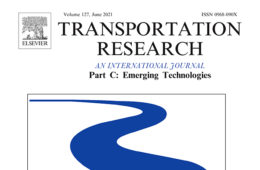Auteurs :
Nicolas Chiabaut
Lucas Magnana
Hervé Rivano
Biking is gaining in popularity all around the world as a healthy and environmentally friendly mode of transportation. Urban policies tend to encourage citizens to use bicycles.
This can be done by creating new cycling infrastructures, the renovation of old ones or the deployment of bike-sharing systems (BSS). These policies having a cost, understanding and predicting the behavior of cyclists has become a necessity in order to optimize them. Classical methods analyzing cyclists’ route choices use external factors and generated choice sets of paths along with a logit model to create a discrete route choice model. Nevertheless, few studies focus on the predictive capacity that this type of model can offer. In this paper, we developed a prediction-centered bicycle route choice model. Our model is created without using external factors or choice sets of paths as in the more classical methods. The idea of our method is to use deep and machine learning algorithms on GPS tracks. These algorithms learn representations from the data which replace explicit factors. To build the model, we clustered the GPS tracks using DBSCAN. The clusters allow to identify the cyclists’ preferred road segments and are used to create paths using them. A method weighting the road graph weights is developed to create paths passing through the preferred road segments of a given cluster. A LSTM is finally trained in order to retrieve a cluster from a shortest path between an origin/destination pair. Tracks created by our model are more similar to the original GPS tracks than the shortest paths or tracks generated by a prominent path computation service.

Sur le même thème
-

PRESSE – Des pistes cyclables virtuelles pour optimiser le passage des vélos
6 juillet 2022En savoir plusA l’INSA Lyon, Lucas Magnana souhaite inciter les citoyens à utiliser davantage le vélo en ville grâce à l’intelligence artificielle. Une thèse encadrée par Hervé Rivano et Nicolas Chiabaut, expert en sciences de la mobilité chez Citec.
-

Demand-Driven Optimization Method for Microtransit Services
10 novembre 2021En savoir plusMany shared mobility solutions have been developed over recent decades. In the case of mobile technological innovations, new solutions that are more flexible to user demands have emerged.
-

Traffic congestion and travel time prediction based on historical congestion maps and identification of consensual days
1 mars 2021En savoir plusIn this paper, a new practice-ready method for the real-time estimation of traffic conditions and travel times on highways is introduced. First, after a principal component analysis, observation days of a historical dataset are clustered. Two different methods are compared: a Gaussian Mixture Model and a k-means algorithm.




